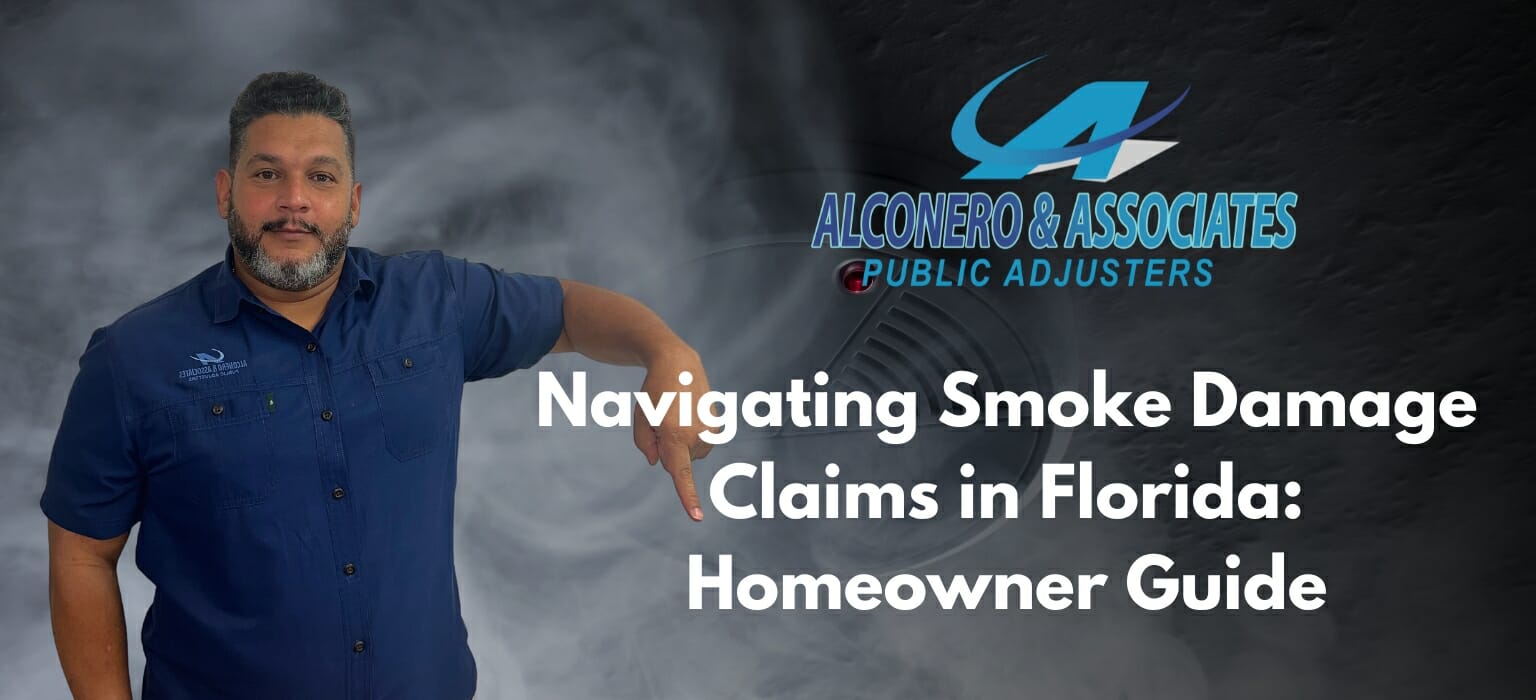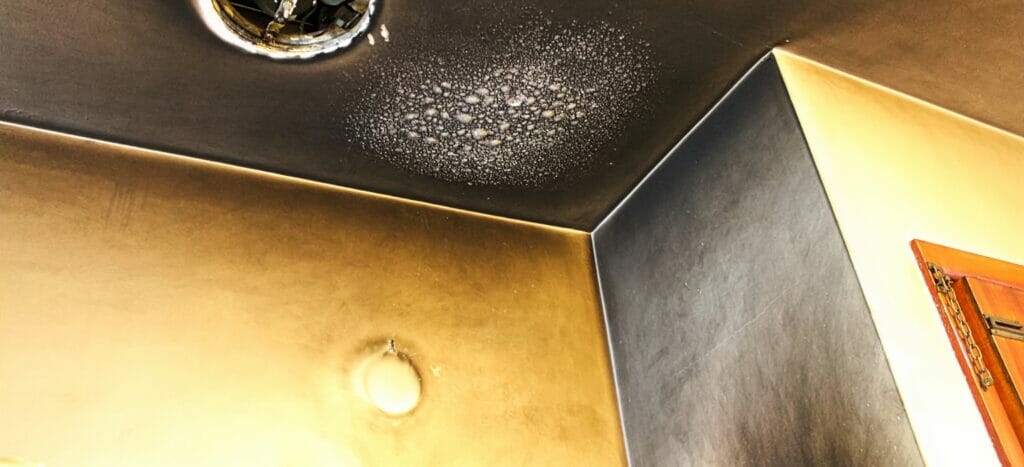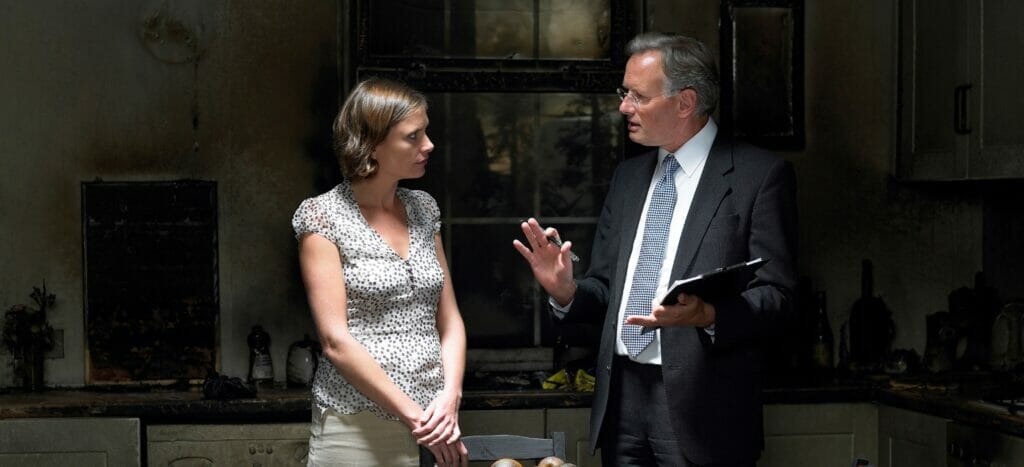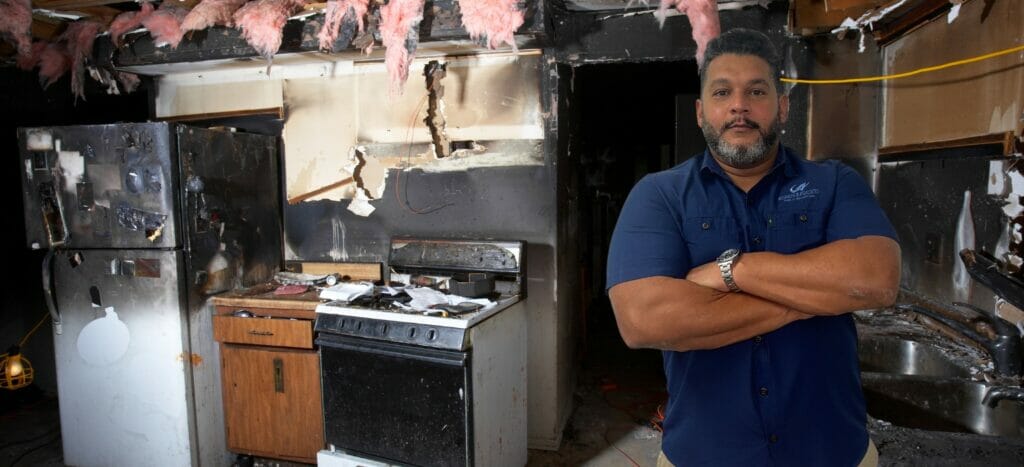
Overview
In the Sunshine State, where homes are as much a treasure as the beaches, understanding smoke damage claims is crucial. Every year, countless Floridians face the aftermath of fires, with the silent and often overlooked culprit being smoke damage. While the flames draw immediate attention, the lingering effects of smoke can be just as devastating. This guide aims to shed light on the intricacies of smoke damage claims in Florida, ensuring homeowners are well-equipped to navigate the often complex insurance landscape. Whether you’re a new homeowner or have lived in Florida for years, this guide is your compass to understanding, filing, and successfully claiming for smoke damage.
Learn more about smoke damage claims in Florida.
Introduction
Florida, with its pristine beaches and vibrant culture, is a haven for homeowners. Yet, the state’s unique climate and environment present challenges, especially when it comes to property damage. Among these challenges, smoke damage stands out as a silent adversary. It’s not just about the visible soot or the lingering odor; it’s about the potential health risks, the depreciation of property value, and the intricate dance of filing insurance claims. For Floridians, understanding the nuances of smoke damage claims is not just beneficial—it’s essential. This guide dives deep into the world of smoke damage in Florida, offering insights, real-life examples, and expert opinions to empower homeowners. Knowledge is power, and with this guide, you’ll be well-armed to tackle any smoke damage claim that comes your way.
Discover the importance of understanding smoke damage claims.
What is Smoke Damage at Home?

Smoke damage, often overshadowed by its fiery counterpart, is a silent intruder that wreaks havoc long after the flames are extinguished. At its core, smoke damage refers to the residual effects of a fire, manifesting as discoloration on walls, ceilings, and fabrics. But it’s more than just unsightly stains. Smoke carries with it a cocktail of chemicals and soot, which can penetrate deep into the nooks and crannies of a home, affecting both its structure and contents.
The characteristics of smoke damage include:
- Surface Discoloration: Walls, ceilings, and fabrics can take on a yellowish hue, while metals might tarnish.
- Persistent Odor: The smell of smoke can linger for weeks, if not months, embedding itself into carpets, curtains, and furniture.
- Corrosion: The acidic nature of smoke can corrode metals and even cause electronics to malfunction.
- Residue: Depending on what burned (wood, plastic, or other materials), different types of soot residue can be left behind, each with its own cleaning requirements.
Understanding smoke damage is the first step in addressing it. It’s not just about aesthetics; it’s about safeguarding the health of the home’s inhabitants and preserving the property’s value.
Know more about the effects of smoke on your property.
Common Causes of Smoke Damage at Home
While the aftermath of a large fire is the most obvious cause of smoke damage, several other scenarios can lead to similar outcomes. It’s essential to recognize these causes, as early detection can significantly reduce the extent of damage and associated costs. Here are the most common culprits:
- Kitchen Mishaps: A burnt meal or an unattended stove can quickly fill a home with smoke, leaving behind a residue and odor.
- Electrical Failures: Faulty wiring, overloaded circuits, or malfunctioning appliances can lead to small fires and subsequent smoke damage.
- Candles: While they set a mood, unattended candles can tip over or burn too close to flammable materials, producing smoke.
- Heating Equipment: Space heaters, especially when placed near flammable items, can be a source of smoke.
- Smoking Indoors: Cigarettes, cigars, and pipes, if smoked inside, can leave a lingering odor and residue, especially on walls and ceilings.
- Nearby External Fires: Even if a fire isn’t directly within a home, nearby wildfires or house fires can introduce smoke into neighboring residences.
Being aware of these common causes and practicing preventive measures can drastically reduce the risk of smoke damage. After all, prevention is always better than cure.
Learn how to protect your home from potential smoke damage.
Health Risks Associated with Smoke Damage at Home
While the visible signs of smoke damage are concerning, the invisible health risks are even more alarming. Smoke, with its cocktail of chemicals and particulates, can pose significant health threats to a home’s inhabitants. Here’s what every homeowner should be aware of:
- Respiratory Issues: Inhalation of smoke can irritate the lungs, leading to coughing, shortness of breath, and exacerbation of asthma and other respiratory conditions.
- Eye Irritation: The chemicals in smoke can cause redness, itchiness, and a burning sensation in the eyes.
- Skin Problems: Direct contact with soot and residues can lead to skin irritations, rashes, and allergies.
- Cardiovascular Risks: Prolonged exposure to smoke can increase the risk of heart attacks and other cardiovascular problems.
- Aggravation of Chronic Illnesses: Individuals with chronic conditions, especially respiratory diseases, may experience worsened symptoms after smoke exposure.
- Vulnerable Groups: Children, the elderly, and those with compromised immune systems are particularly susceptible to the adverse effects of smoke.
It’s crucial to address smoke damage promptly, not just for the sake of the property, but more importantly, for the health and well-being of its residents. Clean air is a cornerstone of a healthy home, and understanding the risks of smoke damage is the first step in ensuring it.
Discover more about the health implications of smoke and how to mitigate them.
Difference Between Smoke Damage and Fire Damage in an Insurance Claim

When disaster strikes in the form of fire, the immediate concern is the flames. However, once the fire is extinguished, homeowners are often left grappling with both fire and smoke damage. While they may seem intertwined, there are distinct differences when it comes to insurance claims:
- Nature of Damage:
- Fire Damage: This refers to the destruction caused directly by the flames. It includes charred structures, melted items, and areas directly affected by the heat.
- Smoke Damage: This encompasses the residual effects of the fire, such as soot deposits, discoloration, and the lingering odor that permeates various materials.
- Extent and Visibility:
- Fire Damage: Often localized to where the fire originated and spread, it’s usually visible and immediate.
- Smoke Damage: Can affect the entire property, even areas far from the fire’s origin. Its effects might not be immediately noticeable but can become evident over time.
- Insurance Coverage:
- Fire Damage: Most homeowner insurance policies cover fire damage, including the cost of repairs and replacements.
- Smoke Damage: While typically included in fire damage coverage, it’s essential to read the fine print. Some policies might have specific clauses or limits related to smoke damage.
- Assessment and Repairs:
- Fire Damage: Requires immediate attention. Structural assessments are crucial to ensure the property’s safety.
- Smoke Damage: Requires specialized cleaning techniques to remove soot and odors. It’s not just about aesthetics; untreated smoke damage can lead to long-term health risks.
Understanding these differences is vital when filing an insurance claim. Being well-informed ensures that homeowners can advocate for the coverage they deserve, ensuring that both fire and smoke damage are adequately addressed.
Learn more about the intricacies of fire and smoke damage claims in Florida.
Assessing the Value of Smoke Damage vs. Fire Damage in Insurance Claims
When tragedy strikes in the form of fire, the aftermath can be overwhelming. For homeowners, understanding the value of the damage is crucial for insurance claims. But how do insurance companies differentiate and assess the value of smoke damage versus fire damage?
- Direct Physical Loss:
- Fire Damage: This is often easier to quantify. It includes the cost of rebuilding structures, replacing destroyed items, and any other direct losses from the flames.
- Smoke Damage: While it might not cause total destruction like fire, the costs can accumulate. Cleaning, deodorizing, and restoring items affected by smoke can be expensive.
- Depreciation:
- Fire Damage: The age, wear, and tear of destroyed items are considered. An old couch might not have the same value as a new one.
- Smoke Damage: The depreciation factor also applies. However, items might depreciate faster due to the lingering effects of smoke, even after restoration.
- Specialized Services:
- Fire Damage: This might require structural engineers, builders, and other professionals to assess and repair.
- Smoke Damage: Specialized cleaning services, air quality experts, and restoration professionals play a crucial role.
- Indirect Costs:
- Fire Damage: This includes alternative living arrangements if the home is uninhabitable.
- Smoke Damage: Even if a home is livable, there might be costs associated with health check-ups, air purifiers, and other measures to ensure a healthy living environment.
- Future Implications:
- Fire Damage: Once repaired, there might not be any lingering effects.
- Smoke Damage: If not addressed properly, there can be long-term health risks and potential depreciation of the property’s value.
In the complex world of insurance claims, understanding the nuances of smoke and fire damage valuation is essential. It ensures homeowners are adequately compensated, allowing them to rebuild and restore their cherished homes.
Get insights on how to navigate the complexities of insurance claims.
Documentation Needed to File a Smoke Damage Insurance Claim
Filing a smoke damage insurance claim can be a daunting process. However, with the right documentation in hand, homeowners can streamline the process and ensure they receive the compensation they deserve. Here’s a checklist of essential documents and their significance:
- Insurance Policy: This is the foundation of your claim. It outlines your coverage, limits, and any exclusions. Always keep a copy handy.
- Photos and Videos: Visual evidence of the damage is crucial. Capture the affected areas, items, and any visible signs of smoke damage.
- Inventory List: Detail all damaged items, their value, and purchase date. This helps in assessing the claim’s value.
- Fire Department Report: If a fire led to the smoke damage, this report provides an official account of the incident.
- Receipts: For any immediate repairs or cleaning done post-damage. This can be reimbursed by the insurance company.
- Professional Assessments: Reports from air quality experts, restoration professionals, or any other specialists who assessed the damage.
- Medical Reports: If the smoke led to health issues, medical documentation can support your claim.
- Witness Statements: Accounts from neighbors or other witnesses can provide additional context to the claim.
Organizing and presenting this documentation effectively can expedite the claim process. Remember, the goal is to paint a clear picture of the extent of the damage and the associated costs.
Find out more about the intricacies of filing a smoke damage claim.
Common Reasons for Denial of a Smoke Damage Insurance Claim
Navigating the world of insurance claims can be tricky. While homeowners expect fair compensation for their smoke damage, there are instances where claims might be denied. Understanding these reasons can help homeowners avoid potential pitfalls. Here are some common reasons for denial:
- Lack of Documentation: Insufficient evidence or documentation can lead to a claim being rejected. Always ensure you have comprehensive records of the damage.
- Policy Exclusions: Some policies might have specific exclusions related to smoke damage. It’s essential to be familiar with your policy’s terms.
- Late Filing: Insurance companies often have a window for filing claims. Delayed submissions can result in denials.
- Failure to Mitigate Damage: If a homeowner doesn’t take immediate steps to minimize further damage, the claim might be denied or reduced.
- Misrepresentation: Any discrepancies in the reported damage versus the actual damage can lead to rejection.
- Non-payment of Premiums: If the insurance premiums aren’t up-to-date, the claim might be denied.
- Origin of Damage: If the smoke damage is from a source not covered by the policy, such as a neighboring property, the claim might be rejected.
While these reasons can be disheartening, being proactive, informed, and organized can significantly reduce the chances of claim denial. Knowledge is power, and in the realm of insurance claims, it’s your best ally.
Learn more about navigating the challenges of smoke damage insurance claims.
Signs of Arson Insurance Companies Look for in Smoke Damage Claims

Arson, the intentional act of starting a fire, is a concern for insurance companies. When assessing smoke damage claims, insurers are vigilant in identifying signs of potential arson to prevent fraudulent claims. Here’s what they typically look for:
- Multiple Points of Origin: Fires that start naturally or accidentally usually have a single point of origin. Multiple starting points can indicate intentional fire-setting.
- Accelerant Residue: The presence of flammable liquids or accelerants, especially in unusual places, can be a red flag.
- Unusual Burn Patterns: Arson fires might leave behind V-shaped burn patterns, indicating where the fire was ignited.
- Absence of Accidental Causes: If common accidental causes (like electrical issues or kitchen mishaps) are ruled out, arson might be suspected.
- Witness Accounts: Reports of suspicious individuals or activities around the property before the fire can raise alarms.
- Financial Motive: If a homeowner is facing financial difficulties or has recently increased their insurance coverage, it might be scrutinized.
- Lack of Personal Items: If valuable items are missing post-fire but not damaged by it, it might indicate a staged scene.
- Alarms and Security: Disabled alarms or tampered security systems can be indicative of intentional fire-setting.
It’s essential to understand that while insurance companies are cautious, their primary goal is to ensure genuine claims are honored. Homeowners should cooperate fully during investigations, providing all necessary documentation and information.
Discover more about the intricacies of smoke damage claims and potential red flags.
Average Payout for a Smoke Damage Insurance Claim
Smoke damage, while often overshadowed by fire damage, can lead to significant repair and restoration costs. But what can homeowners in Florida expect in terms of compensation from their insurance companies? Let’s break it down:
- Extent of Damage: The more extensive the smoke damage, the higher the payout. This includes structural damage, personal property damage, and any additional living expenses if the home is uninhabitable.
- Policy Limits: Every insurance policy has a maximum coverage limit. Homeowners can expect payouts up to this limit, depending on the extent of the damage.
- Deductibles: Before the insurance payout kicks in, homeowners are typically responsible for a deductible. This amount is subtracted from the total claim payout.
- Professional Assessments: Insurance companies rely on professional assessments to determine the extent and cost of damage. The more thorough and detailed the assessment, the more accurate the payout.
- Average Payout: While it varies based on the factors mentioned above, the average payout for smoke damage claims in Florida can range from a few thousand dollars for minor incidents to tens of thousands for more severe cases.
It’s essential for homeowners to understand their policy details, including coverage limits and deductibles, to set realistic expectations for their claim payouts. Being proactive in documenting the damage and seeking professional assessments can also ensure a fair and accurate payout.
Learn more about maximizing your smoke damage insurance claim payout.
Negotiating a Higher Payout for a Smoke Damage Insurance Claim
Insurance claims can sometimes feel like a negotiation game. While insurance companies aim to provide fair compensation, homeowners should be proactive in ensuring they receive the maximum payout possible. Here are some strategies and tips for homeowners looking to negotiate a higher payout for their smoke damage claim:
- Detailed Documentation: The more evidence you have, the stronger your position. This includes photos, videos, professional assessments, and receipts for any immediate repairs.
- Hire an Independent Assessor: While insurance companies have their assessors, hiring an independent expert can provide a more unbiased evaluation of the damage.
- Understand Your Policy: Familiarize yourself with your policy’s terms, coverage limits, and exclusions. This knowledge can be a powerful tool during negotiations.
- Challenge Low Estimates: If you believe the insurance company’s estimate is too low, don’t hesitate to challenge it. Provide evidence to support your claim.
- Seek Legal Advice: If negotiations reach a standstill, consider consulting with an attorney who specializes in insurance claims.
- Consider Mediation: A neutral third party can help facilitate discussions between you and the insurance company, leading to a mutually agreeable settlement.
- Highlight Long-Term Impacts: Emphasize the potential long-term effects of smoke damage, such as health risks and property value depreciation, to justify a higher payout.
Remember, while negotiations can be challenging, the goal is to reach a fair settlement that covers the full extent of the smoke damage. Being informed, prepared, and persistent can make all the difference.
Discover more tips on effectively negotiating with insurance companies.
Role and Benefits of a Public Adjuster in Smoke Damage Claims

In the intricate dance of insurance claims, public adjusters play a pivotal role. These professionals act as advocates for homeowners, ensuring they receive the compensation they rightfully deserve. But what exactly do they bring to the table?
- Expertise: Public adjusters have a deep understanding of insurance policies, claim processes, and the nuances of smoke damage. Their expertise ensures claims are filed correctly and comprehensively.
- Detailed Assessments: They conduct thorough evaluations of the damage, often uncovering details that might be overlooked by insurance company adjusters.
- Negotiation Power: With a public adjuster by your side, you have an expert negotiator who can challenge low estimates and push for a higher payout.
- Time-Saving: Navigating insurance claims can be time-consuming. Public adjusters handle the bulk of the process, allowing homeowners to focus on recovery and restoration.
- Higher Payouts: Studies have shown that homeowners who hire public adjusters often receive higher payouts than those who go it alone.
- Peace of Mind: Knowing you have an advocate in your corner can provide invaluable peace of mind during a stressful time.
In the realm of smoke damage claims, where the effects can be both visible and hidden, having a public adjuster can be a game-changer. They ensure that homeowners are not just compensated for the immediate damage but also for the long-term implications of smoke damage.
Learn more about the invaluable role of public adjusters in smoke damage claims.
Hiring Process of a Public Adjuster for a Smoke Damage Insurance Claim
Deciding to hire a public adjuster is only the first step. The process of selecting and hiring the right professional is crucial to ensure the best outcome for your smoke damage claim. Here’s a step-by-step guide to help homeowners navigate this process:
- Research: Start by researching reputable public adjusters in your area. Look for professionals with experience in smoke damage claims.
- Check Credentials: Ensure the adjuster is licensed in your state and has the necessary certifications.
- Read Reviews: Online reviews and testimonials can provide insights into the adjuster’s expertise and client satisfaction.
- Interview Prospective Adjusters: Meet with potential adjusters to discuss your claim, their approach, and their fees.
- Ask for References: A reputable adjuster should be able to provide references from past clients. Reach out to these references to get firsthand feedback.
- Understand the Fee Structure: Public adjusters typically work on a contingency fee basis, meaning they take a percentage of the claim payout. Ensure you’re clear on this percentage and any other potential costs.
- Sign a Contract: Once you’ve selected an adjuster, formalize the agreement with a contract. This should outline the services provided, fees, and any other pertinent details.
- Stay Engaged: While the public adjuster will handle the bulk of the claim process, stay involved and informed. Regular updates and open communication are key.
Hiring a public adjuster can significantly impact the outcome of a smoke damage insurance claim. By following these steps, homeowners can ensure they’re partnering with a professional who has their best interests at heart.
Discover more about the benefits of hiring a public adjuster for your smoke damage claim.
Documenting Smoke Damage for an Insurance Claim with a Public Adjuster’s Help

Proper documentation is the backbone of a successful insurance claim. With the expertise of a public adjuster, homeowners can ensure that every detail of the smoke damage is meticulously recorded. Here’s how a public adjuster can assist in this crucial process:
- Thorough Inspection: Public adjusters conduct a comprehensive assessment of the property, identifying both visible and hidden signs of smoke damage.
- Photographic Evidence: They capture high-quality photos of the damage, ensuring that every affected area is documented.
- Inventory Compilation: Public adjusters help homeowners create a detailed inventory of damaged items, noting their value and the extent of the damage.
- Expert Consultations: If needed, public adjusters can bring in specialists, such as air quality experts, to provide additional assessments and documentation.
- Estimation of Repair Costs: They provide a detailed estimate of the repair and restoration costs, ensuring that all expenses are accounted for.
- Documentation Organization: All the collected evidence, reports, and estimates are organized systematically, making the claim process smoother.
- Claim Submission: With all documentation in place, public adjusters can assist in submitting the claim, ensuring that all necessary details are included.
Having a public adjuster’s assistance in documenting smoke damage can make a significant difference in the claim outcome. Their expertise ensures that no detail is overlooked, maximizing the potential payout for homeowners.
Learn more about the importance of detailed documentation in smoke damage claims.
Documents to Provide to a Public Adjuster for a Smoke Damage Insurance Claim
When partnering with a public adjuster, homeowners play a crucial role in providing essential documents to support the smoke damage claim. These documents help the adjuster build a robust case for maximum compensation. Here’s a checklist of documents homeowners should provide:
- Insurance Policy: The foundational document that outlines coverage, exclusions, and terms. It’s the starting point for any claim.
- Previous Claims: If you’ve filed claims in the past, especially related to fire or smoke damage, provide those details.
- Photos and Videos: Any visual evidence you’ve captured immediately after the damage can be invaluable.
- Inventory List: If you’ve already compiled a list of damaged items, share it with the adjuster.
- Receipts: For valuable items, receipts can help establish their worth. Also, include receipts for any immediate repairs or cleaning post-damage.
- Fire Department Report: If the smoke damage resulted from a fire, this official report provides crucial context.
- Medical Reports: If the smoke led to health complications, medical documentation can bolster the claim.
- Witness Statements: Accounts from neighbors or other witnesses can provide additional insights into the incident.
By providing these documents, homeowners empower public adjusters to advocate effectively on their behalf. It’s a collaborative effort, with both parties working towards the common goal of a fair and comprehensive claim payout.
Discover more about the collaborative process of working with a public adjuster.
Alconero and Associates: Leading Public Adjusters for Florida Smoke Damage Claims

In the realm of smoke damage claims in Florida, Alconero and Associates stand out as a beacon of expertise and dedication. Here’s why they are the go-to choice for homeowners seeking fair compensation:
- Unmatched Expertise: With years of experience under their belt, Alconero and Associates have honed their skills, ensuring that every claim is handled with precision and care.
- Client-Centric Approach: Their primary focus is on the homeowner. They understand the emotional and financial toll of smoke damage and work tirelessly to alleviate the burden.
- Comprehensive Services: From initial assessments to negotiations with insurance companies, they offer end-to-end services, ensuring that homeowners are supported at every step.
- Proven Track Record: Their success stories speak for themselves. Numerous homeowners have benefited from higher payouts and smoother claim processes, all thanks to Alconero and Associates.
- Transparent Communication: They believe in keeping homeowners informed. Regular updates, clear explanations, and open channels of communication are hallmarks of their service.
- Educational Resources: Beyond their services, Alconero and Associates are committed to educating homeowners. Their website offers a wealth of resources, from detailed guides to frequently asked questions, ensuring that homeowners are always informed.
Serving Key Areas in Florida: Alconero and Associates proudly serve a wide range of areas in Florida, including Miami, Fort Lauderdale, Palm Beach, Naples, Fort Myers, Cape Coral, Sarasota, Tampa, Orlando, and more. Their expansive reach ensures that homeowners across the state have access to their unparalleled expertise and services.
In the often-overwhelming world of insurance claims, Alconero and Associates emerge as a trusted ally. Their expertise, combined with a genuine desire to help, makes them the top choice for smoke damage claims in Florida.
Discover more about Alconero and Associates and their unparalleled services.
Conclusion
Smoke damage, especially in a state as dynamic as Florida, can be a daunting challenge for homeowners. The physical and emotional toll, combined with the intricacies of insurance claims, can feel overwhelming. However, with the right knowledge, resources, and allies, navigating this challenge becomes significantly more manageable.
Understanding the nuances of smoke damage, from its causes to its long-term implications, empowers homeowners to take proactive steps. Whether it’s mitigating the damage, documenting it meticulously, or negotiating with insurance companies, knowledge is undoubtedly power.
And in this journey, having experts like Alconero and Associates by your side can make all the difference. Their expertise, dedication, and client-centric approach ensure that homeowners are not just compensated but also supported throughout the process.
In conclusion, while smoke damage claims in Florida can be complex, they are far from insurmountable. With the right approach, resources, and allies, homeowners can navigate this challenge confidently, ensuring their homes and lives are restored to their former glory.
Stay informed and empowered with resources and expertise from Alconero and Associates.
Frequently Asked Questions About Smoke Damage Claims in Florida
- What is considered smoke damage in a Florida home insurance claim?
- Smoke damage refers to the physical and aesthetic harm caused by smoke exposure after a fire or similar incident. This includes discoloration, odors, and potential structural weaknesses.
- How does smoke damage differ from fire damage in insurance claims?
- While fire damage pertains to the direct destruction caused by flames, smoke damage focuses on the residual effects of smoke. Both can have significant impacts, but they are assessed and compensated differently.
- Why is documentation crucial for a smoke damage claim?
- Proper documentation provides tangible evidence of the extent and nature of the damage, ensuring a more accurate and fair assessment by insurance companies.
- What are common reasons for the denial of smoke damage claims in Florida?
- Claims can be denied due to lack of documentation, policy exclusions, late filing, or discrepancies in reported versus actual damage.
- How can a public adjuster help with my smoke damage claim?
- Public adjusters advocate for homeowners, ensuring they receive fair compensation. They offer expertise in policy interpretation, damage assessment, and negotiation with insurance companies.
- What signs might indicate potential arson in a smoke damage claim?
- Multiple points of fire origin, unusual burn patterns, and the presence of accelerants can be red flags for arson.
- How is the average payout for a smoke damage claim determined?
- Payouts are based on the extent of damage, policy limits, deductibles, and professional damage assessments.
- Why should homeowners consider hiring Alconero and Associates for smoke damage claims?
- Alconero and Associates offer unmatched expertise, a client-centric approach, and a proven track record in maximizing payouts for smoke damage claims in Florida.
Key Takeaways: Navigating Smoke Damage Claims in Florida
Smoke damage claims in Florida come with their unique set of challenges. However, with the right approach, homeowners can ensure they receive the compensation they deserve. Here are some key takeaways from our comprehensive guide:
| Key Takeaways | Description |
|---|---|
| Understanding is Crucial | Grasping the intricacies of smoke damage, from its causes to its health implications, is the first step in a successful claim. |
| Documentation is King | Proper, detailed documentation can significantly influence the outcome of a claim. Photos, videos, and professional assessments are invaluable. |
| Know Your Policy | Familiarizing yourself with your insurance policy’s terms and conditions can prevent potential pitfalls during the claim process. |
| Seek Expert Help | Public adjusters, like Alconero and Associates, can be game-changers. Their expertise and advocacy can lead to higher payouts and smoother claim processes. |
| Stay Proactive | From mitigating further damage to staying updated on the claim’s progress, proactive homeowners often see better outcomes. |
| Educate Yourself | Resources, guides, and expert insights, like those provided by Alconero and Associates, can empower homeowners, making the claim process less daunting. |
In the end, while smoke damage can be distressing, it’s not insurmountable. With the right knowledge, approach, and allies, homeowners in Florida can confidently navigate their smoke damage claims, ensuring their homes are restored and their lives return to normal.
For more insights, resources, and expert guidance, visit Alconero and Associates.
